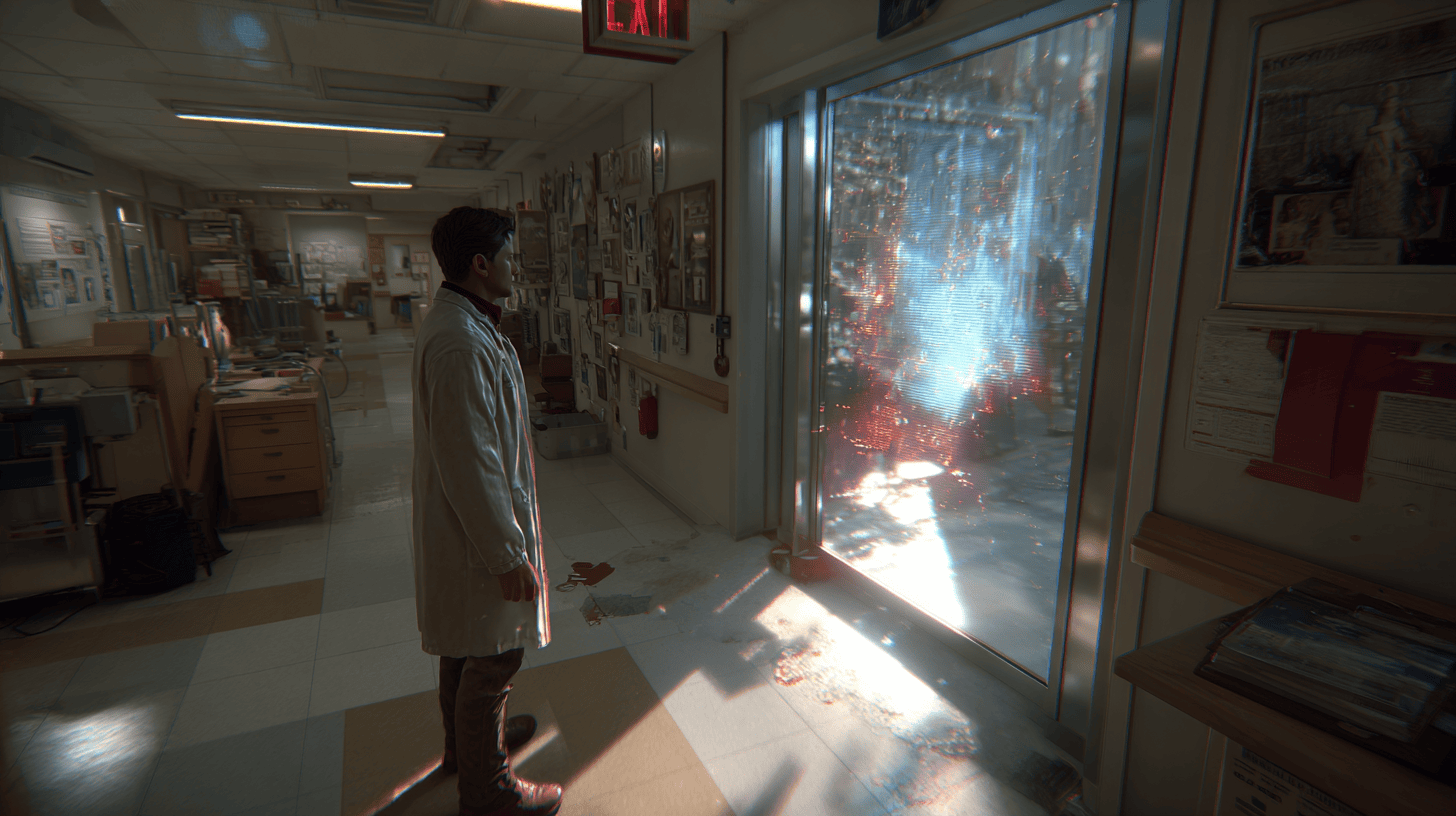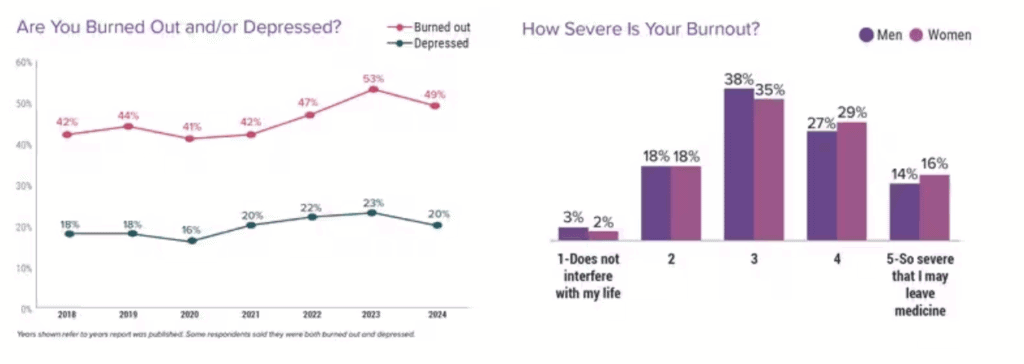Medical training is characterized by levels and checkpoints.
MCAT, med school, rotations, residency, fellowship, partnership…the list goes on.
I’m sure I’m not the first one to draw the parallel between physician life and the structure of a video game, but it’s an idea that’s caught my interest.
For a generation raised on the likes of The Legend of Zelda, Minecraft, and Final Fantasy VII, the structure of modern medicine feels eerily familiar: tiered progression, difficult bosses, and intermittent rewards.
The metaphor starts to wear thin when we get to the point at which real life doesn’t afford autosave points that we can quickly go back to when things go sideways. Real life is permanent, but is there some merit to the rest of it? Or is reframing your outlook to live life like a video game just a gimmick?
In this article, we’ll take a look at whether or not adopting that lens can help with motivation, financial clarity, emotional resilience, or might it risk over-optimization and detachment?
Familiar Territory
Medicine is arguably one of the most structurally gamified careers in modern society. You enter as a novice, grind through levels of training, pass literal tests to “level up”, and collect titles like they’re loot.
Game-like thinking offers a cognitive scaffold that can bring structure to what often feels chaotic.
In medicine, uncertainty is the rule, not the exception. Whether it’s unpredictable workloads, evolving EMR systems, or shifting institutional policies, control feels limited.
By thinking in missions rather than unknowns, physicians might reclaim some form of agency.
Studies in educational psychology and behavioral science support the utility of such frameworks.
An analysis by BMC Medical Education found that gamified learning helped to enhance clinical reasoning education across healthcare disciplines and settings.
This suggests that if games can help improve learning and equip healthcare workers with skills faster and more intuitively, then the principles of gamification (breaking long goals into tasks, tracking progress, and time for reflections at “checkpoints”) when applied to real life can help combat the side effects of working in an industry that demands everything from its workers.
So, while few physicians explicitly say, “I live life like a game,” the underlying logic of mission-focused progress and structured goal hierarchies is already baked into their training.
If you were to consciously embrace that logic outside the hospital, too, what shifts might it produce?
On the other hand, while this structure creates clarity and momentum early on, it can also embed over-identification with progression.
The caveat, then, in medicine being much like a video game is that it’s a game where you can’t quit, can’t respawn, and too often forget who’s playing.
What are the Best Non-Salary Perks for Physicians? Click to find out.
Burnout: The Hardest Boss Battle
Burnout remains one of the most persistent threats to physician well-being.
According to the Medscape Physician Burnout & Depression Report 2024, 49% of physicians surveyed experienced burnout. And 30% – 40% said that they might leave medicine in the next two years.
Image Source: Medscape. Image Source: Medscape
Unlike games, life doesn’t provide automatic checkpoints; the pause button is hidden behind vacation requests or leave approval forms. When physicians perform at near-max power output week after week, they run the same risk classic gamers do: over-grinding with no sense of progression.
If you never stop to log XP, or log out, you never realize how far you’re pushing yourself beyond sustainable limits.
We know what the recommended recovery strategies are: sabbaticals, off-boarding periods, peer support, and tracking mental energy, not just hours. But how often do we allow ourselves the grace to implement them?
An article in Neurology Advisor highlights the importance of time off.
“In addition to the potential value of vacation time for reducing professional burnout, multiple studies have linked adequate vacation time with improvements in various health measures and outcomes…”
A vacation, then, is the equivalent of creating a “save point” in your life. And rather than being considered a luxury, it ought to be seen as a necessary design choice.
Read More: It’s Not Just Doctors: Working in the Time of a Burnout Crisis
FIRE as the Ultimate Campaign
Financial independence, or FIRE, is often seen as the endgame for physicians: long training, high income, and a goal to retire early or reduce clinical hours.
But if you treat FIRE as the ultimate boss battle, what happens after you defeat it? Many physicians find themselves wondering: Now what?
Without something to fill our days, FIRE can turn out to be…anticlimactic. Perhaps even disconcerting.
If you treat FIRE instead as a launch point into open-world mode, it becomes a strategic pivot.
Some physicians successfully orchestrate second careers in consulting, writing, coaching, or global health because they realize that the true power of FIRE is freedom.
Physician communities like ours document real stories of individuals who reached their number by investing wisely and saving aggressively. Stories of paid-off debt and a life built around purpose and flexibility. In video game terms, that’s a map expansion.
How does this help? Thinking of FIRE as a DLC rather than a final finish line helps smooth the transition, avoiding identity collapse and fostering new meaning.
Relationships are Core Gameplay, Not Side Quests
In many game narratives, companions offer support, backup, and shared rewards.
In physician life, relationships (both personal and professional) function much the same way. Yet many doctors, especially those driven by career growth, treat relationships as secondary to productivity.
Too many physicians treat life as a solo campaign. But medicine is already social – often taxingly so. And yet, many don’t develop the tools to maintain relationships outside of transactional roles.
A study published in the Journal of Surgical Research found that supportive work communities and mentorship amongst surgeons could help mitigate burnout.
Equally, supportive home relationships help mitigate stress. Spouses and friends add perspective, humor, and emotional reload capability, helping physicians to avoid “NPC mode,” or autopilot existence.
A JAMA Network study found that career support from one’s spouse resulted in a lower rate of burnout among physicians.
Reframing relationships as co-op mechanics, rather than optional extras, shifts how physicians allocate time.
That might mean not skipping dinner with family, or sharing mentorship time with junior colleagues, not merely as a duty, but as relationship-building side quests with real personal return.
Living life like a video game invites collaboration, where mentorship is co-op mode, marriage is an alliance, and friendships are resource generators, not time sinks.
Read about 7 Ways To Find More Work-life Balance as a Physician
The Emotional Economy
Empathy is a core characteristic of healthcare professionals. But it comes at a cost.
Studies have linked excessive affective empathy and empathy for pain to depression, anxiety and burnout.
And then there’s the compassion fatigue many healthcare providers have to contend with, as explored in this study.
Without effective emotional regulation practices in place, physicians are basically heading out into the fray completely vulnerable.
In game terms, that’s like sustaining damage every time you interact with certain characters, without armor or recovery.
A growing body of research supports the cultivation of compassionate detachment: caring faculties that don’t overdraw emotional capital.
As a metaphor, think of it as equipping emotional armor and shields, so you can still perform heroic work without collapsing after every mission.
Practically, this means integrating reflective breaks, peer consultation, and brief mindfulness practices during shifts can recharge emotional capacity.
Burning through empathy without replenishment? That’s a quick route to game over.
Post-Retirement Identity
Many physicians assume that FIRE = automatic fulfillment.
But studies suggest otherwise.
It’s common for retirees to feel out of place early on, and for professionals who live and breathe their profession (physicians), it’s even more of an emotional and existential challenge.
Around 40% of retirees are more likely to experience a heart attack or stroke, as compared to their peers who continue to work. Not to mention, retirement is often linked to an overall decline in health.
Without carefully designed second-level goals, some of us experience identity deflation.
Seeing retirement as a new campaign where you can pivot into consulting, teaching, public policy work, writing, or creative pursuits helps maintain momentum while honoring the transition.
The Risks of Leveling Too Hard
Nevertheless, applying the video game metaphor carelessly can run you into pitfalls like:
- Over-optimization: There’s no leaderboard for “most efficient adult.” Yet many physicians start compulsively tracking tasks and ignore spontaneity or rest. Productivity becomes an addiction rather than performance.
- Moral detachment: Reduction of human care into point-earning tasks risks flattening real patients into “missions.”
- Rigidity: If the game’s rules change, like new regulations, pandemic stress, or personal illness, the model can collapse. Real life lacks consistent patch updates that keep things running smoothly.
In other words, this metaphor is supposed to be used as a toolkit, something that can help you manage burnout or busy schedules. Nothing more.
How to Play Smart
Thinking of life like a video game can offer clarity, structure, and psychological resilience – if approached thoughtfully.
It’s not about escapism or living in a fictional world. It’s about seeing opportunities for progress, planning for rest, and building decision-making systems that serve you, both as a doctor and as a person.
But it’s also not a universal truth. It’s a metaphor, and metaphors can mislead when overextended. If you treat everything as a side quest, you risk losing sight of what truly matters.
So what do you think?
I’m curious to know: Have you ever found yourself thinking in game-like terms? Are there physicians out there who grew up gaming and now notice the same skills playing out in surgery, diagnosis, or leadership? Has this framework helped (or hindered) you in medicine or FIRE?















1 thought on “Should Physicians Live Life Like a Video Game?”
dude you are making me want to play Final Fantasy right now! the last one I played was FFXIII, was awhile ago!
the thing with video games is usually there is an ending when you beat the game. our career in medicine does not end, but keeps going. I myself have to make sure that in my career that I don’t succumb to the arrival fallacy like in video games. In medicine and in life there is always another goal to chase, unlike a video game where you can beat the game and complete all the side quests.